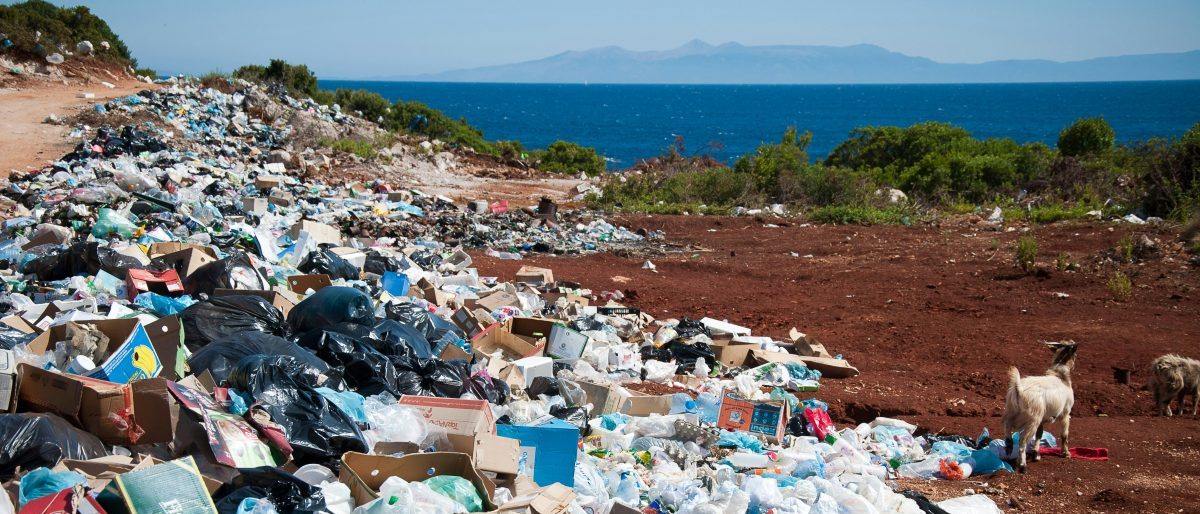Launching the Local and Subnational Governments Coalition to end plastic pollution

Right before the fourth session of the Intergovernmental Negotiating Committee (INC4), taking place from 23 to 29 April in Ottawa Canada, ICLEI – Local Governments for Sustainability, the Gouvernement du Québec, the Government of Catalonia, UCLG and Partners officially launched the Global Coalition of Local and Subnational Governments to end Plastic Pollution and issued a call for action. The coalition is an international coalition of local and subnational governments, and partner organizations, with the primary goal of stopping plastic pollution and ensuring that the Intergovernmental Negotiating Committee recognizes the critical role that local and subnational governments have in addressing the current plastics crisis.
Gino Van Begin, Secretary General of ICLEI, said, “ICLEI has long promoted multilevel governance as a vital way to collectively tackle our most pressing global sustainability challenges. Through our ICLEI Circulars program, we have supported our constituency to effectively use systems approaches for understanding, planning and managing resources, infrastructure and pollution in their jurisdictions. It is ever more important that considerations from local and subnational governments are taken into account during the negotiations between Member States so that we end up with an ambitious plastics treaty that enables collective action across all levels of government and with all stakeholders.”
Plastic pollution has become one of the most pressing environmental issues. Global plastic production has risen exponentially in the last decades, to more than 460 million tons[1] per year, and only an estimated 9% has been recycled[2] . Of the 8.3 billion tons of plastics produced since the 1950s[3], 79% have ended up in landfills or seeped into the environment[4]. Plastics make up 85% of marine debris, and are amongst the largest, most damaging, and long- lasting types of waste[5],[6]. In a business- as- usual scenario, plastic waste is estimated to increase more than 300 % by 2060[7].
Addressing plastic pollution is a complex issue, involving multiple sources and actors, and requiring different stakeholders to join forces and intervene at various levels. Local and subnational governments (LSNG) are at the frontline of the plastic pollution crisis, facing increasing pressure to mitigate and respond to its devastating impact on the health and wellbeing of the environment and communities. As part of a whole of government approaches, it is essential to highlight the significant contribution that local and subnational governments make in addressing this worldwide challenge. The treaty should address the imbalance of the plastic value chain by establishing global rules and regulations across the full lifecycle of plastics, place accountability and appropriate measures upstream, and reduce the risk that cities responsible for waste management face by the uncontrolled accelerating growth in plastic waste generation.
To strengthen the global response to plastic pollution, The Global Cities Hub joins the LSNG Coalition to urge Member States to:
- Include LSNGs in the Negotiation Process and ensure their meaningful participation to harness their expertise and valuable local insights.
- Recognize and Support explicitly the pivotal role of LSNGs in the treaty, in particular in relation to its implementation.
- Follow a Comprehensive Approach by developing a robust treaty framework that addresses the entire plastic lifecycle, holds stakeholders accountable, and prioritizes waste reduction measures.”
The coalition also seeks to ensure that the future international instrument on plastic pollution has a high ambition to address plastic pollution, and also create healthy and thriving communities and workforce in line with the principles of a Just Transition, while ensuring a sustainable economy. Further objectives of the coalition include:
- Objective 1: To gather LSNGs support from around the world; creating a common voice to call for an ambitious legally binding instrument to end plastic pollution, including the rules and regulations needed, as mentioned in the coalition statement. This will ensure that LSNGs are considered in post-INC processes.
- Objective 2: To include the essential role of LSNGs in the future instrument on plastic pollution and key considerations for LSNGs which includes the ambition of the instrument.
- Objective 3: To advocate and raise awareness among Member States to ensure that they acknowledge and take into account the role of LSNGs in the provisions of the treaty.
LSNG representatives are invited to endorse this effort by signing the Coalition Statement, Parties are invited to support the Coalition and help bring the Coalition objectives into their official positions. For more information about the coalition and to read the Coalition Statement, please visit ICLEI Circulars website.
The Fifth Session of the Intergovernmental Negotiating Committee (INC5) is scheduled to take place from 25 November to 1 December 2024 in Busan, Republic of Korea. Together with our partners, ICLEI will assist local governments in making further strides in addressing plastic pollution.
For more information, please refer to the Media Release: Local and subnational Governments Coalition to end Plastic Pollution, published by the Circular development team of ICLEI.


